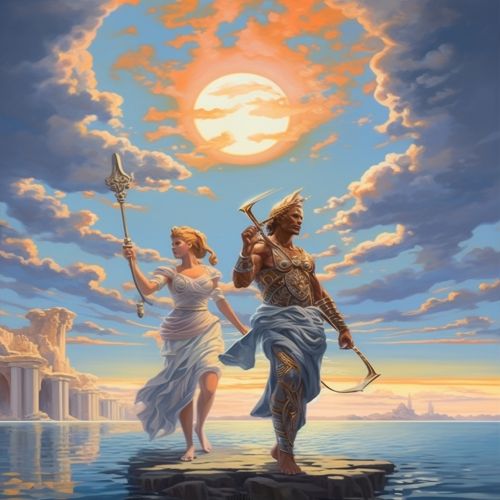Ancient Greek mythology
Origins of Greek Mythology
Ancient Greek mythology, a significant part of the ancient Greek religious beliefs, is a collection of stories or myths related to gods, heroes, and rituals. These myths were used by ancient Greeks to understand the world around them, explaining natural phenomena, cultural variations, traditional enmities, and friendships.
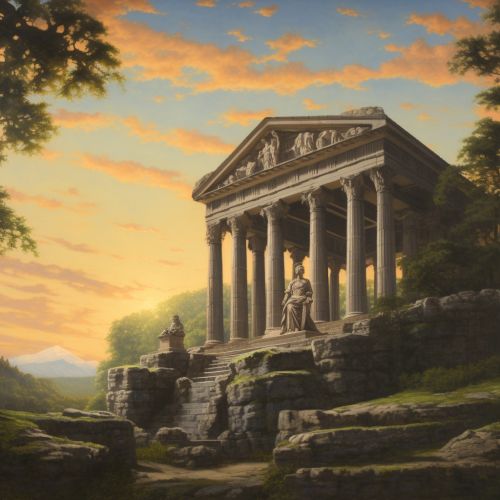
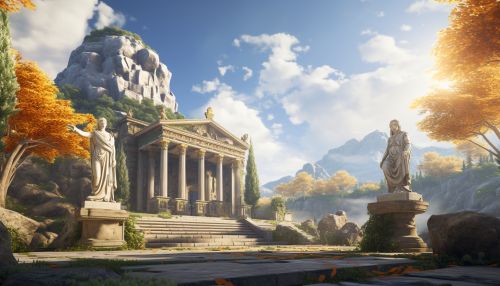
The origins of Greek mythology are obscure, but it is believed to have originated from the pre-Hellenic civilizations, such as the Minoans and the Mycenaeans. The myths were passed down orally for generations before they were written down by poets such as Homer and Hesiod.
Gods and Goddesses
The pantheon of Greek gods and goddesses is vast, with each deity having specific attributes, realms, and symbols. The most significant deities were the twelve Olympian gods, who resided on Mount Olympus under the rule of Zeus.
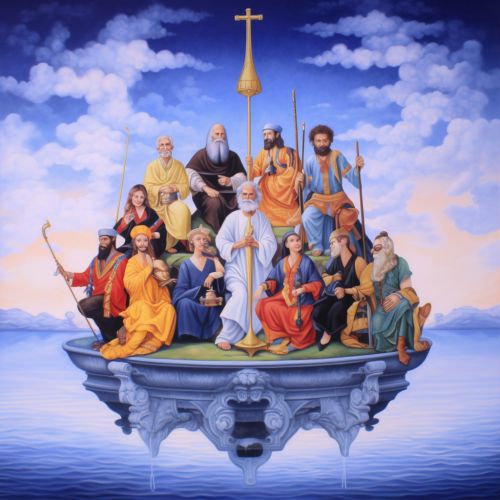
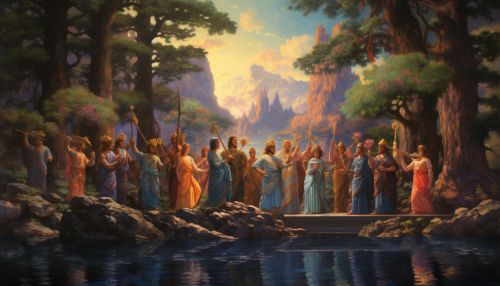
Zeus
Zeus, the king of the gods, was the god of the sky and thunder. He was known for his numerous affairs with both goddesses and mortal women, resulting in many famous offspring such as Hercules and Perseus.
Hera
Hera, the queen of the gods and Zeus's wife, was the goddess of marriage, childbirth, and family. Despite being the wife of Zeus, she was often at odds with him due to his infidelities.
Poseidon
Poseidon, the brother of Zeus, was the god of the sea, earthquakes, and horses. He was known for his volatile temper, which was often the cause of earthquakes in Greek mythology.
Athena
Athena, the goddess of wisdom, courage, and strategic warfare, was the daughter of Zeus. She was born from Zeus's forehead fully grown and dressed in armor.
Apollo
Apollo, the god of music, truth, prophecy, healing, sun, and light, was the son of Zeus and Leto. He was often depicted with a lyre and a bow and arrow.
Artemis
Artemis, the goddess of the hunt, wilderness, wild animals, and chastity, was the twin sister of Apollo. She was known for her fierce independence and was often depicted with a bow and arrow.
Other Olympian Gods
Other Olympian gods include Ares, the god of war; Aphrodite, the goddess of love and beauty; Hermes, the messenger of the gods; Hephaestus, the god of fire and metalworking; Demeter, the goddess of agriculture; and Dionysus, the god of wine and festivity.
Heroes and Heroines
Greek mythology is filled with tales of heroes and heroines who performed extraordinary feats, often with the aid or hindrance of the gods. These stories served as moral and cultural lessons for the ancient Greeks.
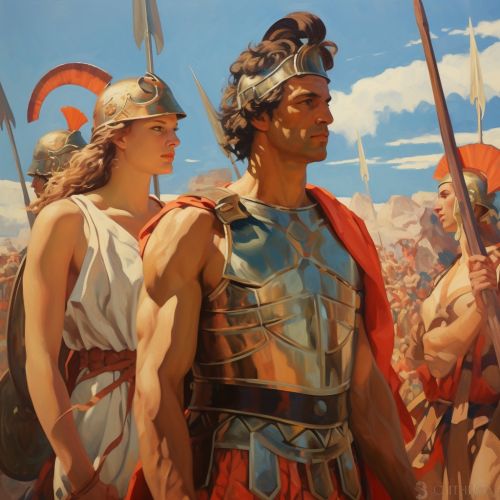
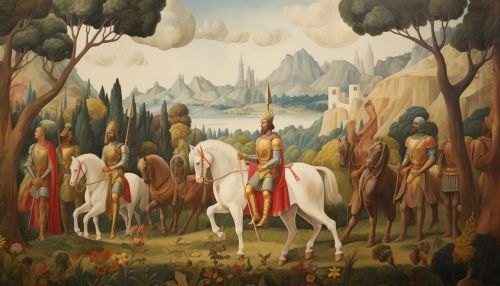
Hercules
Hercules, the son of Zeus and the mortal woman Alcmene, was renowned for his extraordinary strength. He is best known for the twelve labors, a series of tasks he was ordered to complete as penance for killing his wife and children in a fit of madness induced by Hera.
Perseus
Perseus, another son of Zeus, is best known for killing the Gorgon Medusa. With the help of Athena and Hermes, Perseus was able to behead Medusa and later used her head, which could turn people to stone, to rescue his future wife, Andromeda.
Jason
Jason was the leader of the Argonauts, a group of heroes who accompanied him on his quest to retrieve the Golden Fleece. The journey was filled with numerous trials and tribulations, including battling harpies, clashing rocks, and a dragon.
Other Heroes and Heroines
Other notable heroes and heroines include Theseus, who killed the Minotaur; Odysseus, the protagonist of Homer's Odyssey; Achilles, the greatest warrior in the Trojan War; and Helen of Troy, whose abduction triggered the Trojan War.
Mythical Creatures
Greek mythology is also known for its myriad of mythical creatures, each with its unique characteristics and stories.
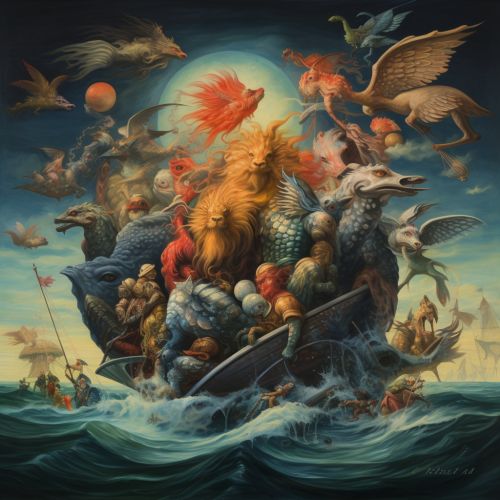
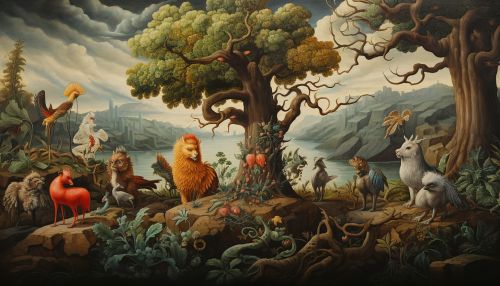
Centaurs
Centaurs were creatures with the upper body of a human and the lower body of a horse. They were often depicted as wild and lustful, but some, like Chiron, were wise and beneficial to humans.
Minotaur
The Minotaur, a creature with the body of a man and the head of a bull, was confined in the Labyrinth by King Minos of Crete. It was eventually killed by Theseus.
Sirens
Sirens were dangerous creatures who lured sailors with their enchanting music and voices to shipwreck on the rocky coast of their island.
Other Mythical Creatures
Other mythical creatures include the Cyclopes, one-eyed giants; the Gorgons, monstrous women with snakes for hair; and the Hydra, a multi-headed serpent defeated by Hercules.
Impact on Western Culture
Greek mythology has had a profound impact on Western culture, influencing literature, art, philosophy, and even modern pop culture. It continues to be a source of inspiration for many writers, artists, and filmmakers.
